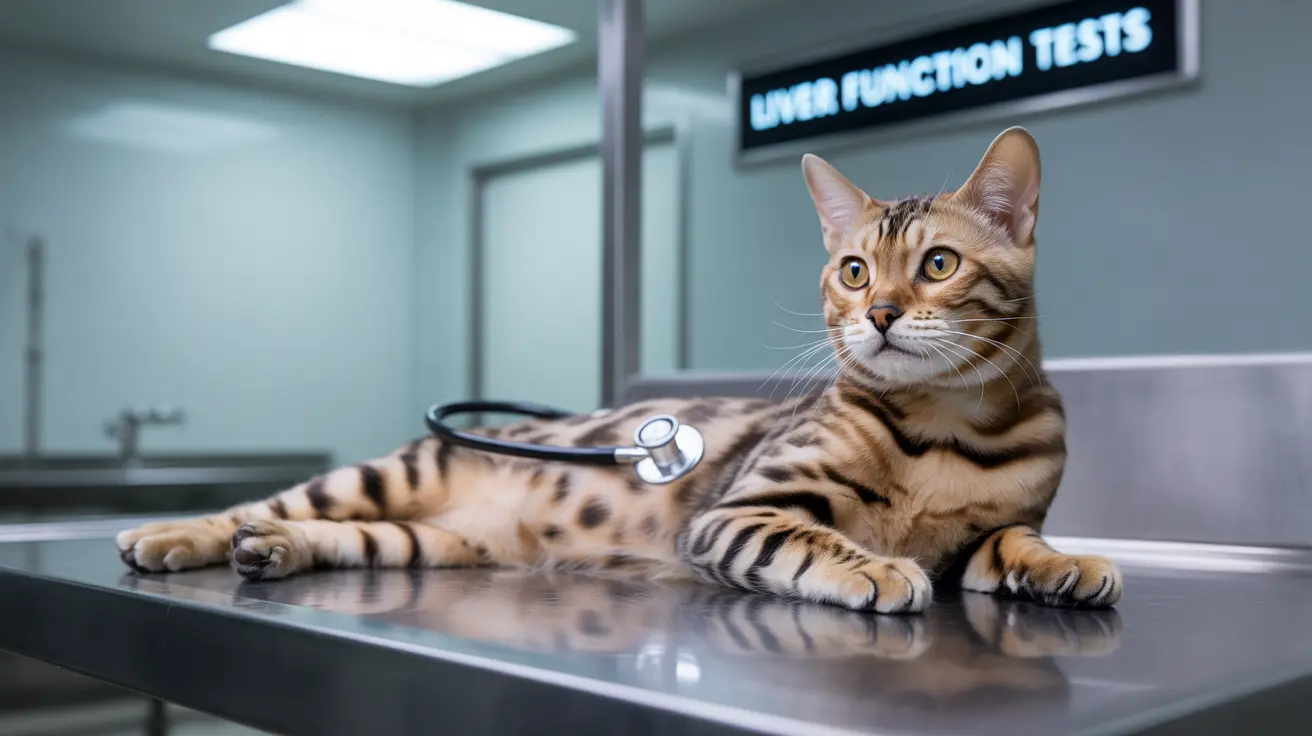Liver failure in cats is a serious medical condition that requires immediate veterinary attention. When a cat's liver stops functioning properly, it can lead to a cascade of health issues affecting multiple body systems. Understanding the causes, recognizing early warning signs, and knowing when to seek treatment can make a crucial difference in your cat's survival and recovery.
This comprehensive guide will explore everything cat owners need to know about liver failure, from its common causes to treatment options and preventive measures. Whether you're dealing with a current diagnosis or wanting to protect your feline friend, this information will help you make informed decisions about your cat's health.
Common Causes of Liver Failure in Cats
Several factors can contribute to liver failure in cats. The most prevalent cause is hepatic lipidosis, commonly known as fatty liver disease, which accounts for approximately one-third of all feline liver conditions. This condition often develops when cats stop eating for extended periods, causing fat to accumulate in the liver tissue.
Other significant causes include:
- Infectious diseases (FIP, toxoplasmosis)
- Exposure to toxins and medications
- Inflammatory liver diseases
- Cancer
- Bile duct obstruction
Recognizing the Warning Signs
Early detection of liver failure symptoms can significantly improve your cat's prognosis. The initial signs may be subtle but typically progress rapidly if left untreated.
Primary Symptoms
- Loss of appetite
- Lethargy
- Vomiting
- Weight loss
- Jaundice (yellowing of eyes, skin, and gums)
Advanced Symptoms
- Neurological issues (confusion, circling)
- Excessive drooling
- Fluid accumulation in the abdomen
- Blood clotting problems
- Behavioral changes
Diagnosis and Treatment Approaches
Veterinarians use various diagnostic tools to confirm liver failure and determine its underlying cause. These typically include blood tests, imaging studies, and sometimes liver biopsies. The treatment plan depends on the specific cause but often involves:
Immediate Interventions
- Intravenous fluid therapy
- Nutritional support
- Anti-nausea medications
- Vitamin supplements
Long-term Management
- Prescription diets
- Regular monitoring
- Medication adjustments
- Supportive care
Prevention and Long-term Care
While not all causes of liver failure are preventable, certain measures can reduce your cat's risk:
- Regular veterinary check-ups
- Maintaining a healthy diet
- Avoiding exposure to toxins
- Prompt treatment of underlying conditions
- Monitoring eating habits closely
Frequently Asked Questions
What are the common causes of acute liver failure in cats?
Acute liver failure in cats commonly results from hepatic lipidosis, infections, toxin exposure, and inflammatory diseases. Fatty liver disease is particularly common in cats who stop eating for extended periods.
How can I identify liver disease in cats, and what are its early warning signs?
Early warning signs include decreased appetite, lethargy, vomiting, and weight loss. Jaundice (yellowing of the eyes, skin, and gums) is a critical indicator that requires immediate veterinary attention.
What are the most effective treatments for liver failure in cats, and how can I manage my cat's care?
Treatment typically involves a combination of supportive care, including IV fluids, nutritional support, and medications. Management may require feeding tubes, prescription diets, and regular veterinary monitoring.
Can liver disease in cats be prevented, and what steps can I take to reduce the risk?
While not all liver disease is preventable, you can reduce risk by ensuring regular meals, avoiding toxin exposure, maintaining regular vet check-ups, and promptly addressing any health issues.
What is the prognosis for cats with liver failure, and how can early intervention improve outcomes?
Prognosis varies depending on the cause and timing of intervention. Early detection and treatment significantly improve outcomes, with some conditions like hepatic lipidosis having up to 80-90% survival rates when treated promptly.
Remember, liver failure in cats is a serious condition requiring immediate medical attention. If you notice any concerning symptoms in your cat, don't wait - contact your veterinarian right away. Early intervention often makes the difference between recovery and serious complications.






